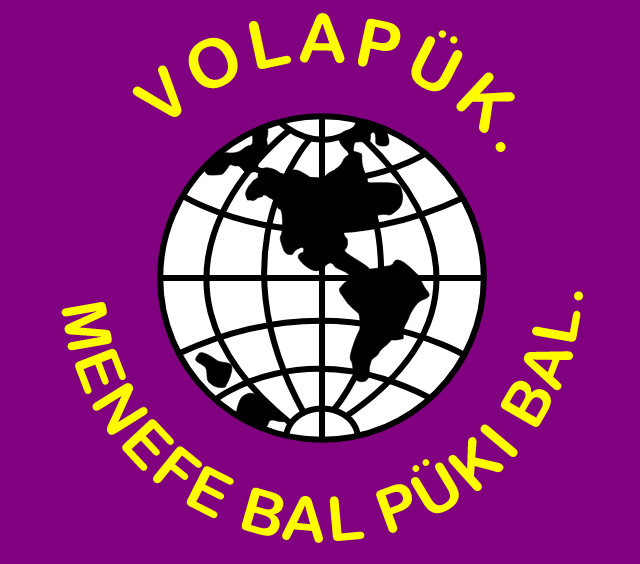Why did they have to use the word “nation”? With that word being used, the comment is even more stupid. A nation doesn’t have to be a country…
ITT: arguments about the Ship of Theseus
every country is a Ship of Theseus at the end of the day.
laughs in Byzantium
“how old is a country” is almost nonsenscal. Constitutions have dates, countries are continuos fluid things. Ill illustrate with an example: How old is your family? do you go by your oldest relative, your last name, some ancient family tree, or do you go all the way to LUCA? it’s nonsensical.
New World vs Old World is so real. Am in North America, my love is from Europe. She casually has dusty books older then local archeological sites.
We’ll have to get into what makes a ‘nation’, but the Romanov Dynasty alone was ~300 years old. Political continuity between ruling houses does not denote a new national identity.
Are you trying to tell me that the screenshot of some post from some rando who writes super assertively is WRONG!?
ITT: Semantic arguments
Americans are dumb as feces.
Am American, can confirm.
Wasn’t Ancient Egypt thousands of years old?
Ancient Egypt as we think of it had archeologists that studied the original smaller kingdoms that unified to become Egypt. Cleopatra is closer to our time than she was to the building of the Great Pyramids.
And if some dumbass wants to make some kind of argument about the US being a super special first Christian country, they should know that Ethiopia was the first country to declare itself as a Christian nation in the 300’s CE…and has been a contiguous sovereign state since then.
Weren’t they occupied by the Italians and British in 1936-1945?
Ancient Egypt is generally regarded as the unifying to when Rome took over. That’s like 3000 BC to somewhere around Caesars time. So like 3000 years they existed in that general form.
Yup. Off the top of my head, it goes back to 2000 BCE or something kinda old like that…
Around 6,600 HE, for the first dynasty. The last dynasty with a native ruler was the thirtieth dynasty, where Nectanebo II reigned from 9,342 HE to 9,360 HE.
Current year is 11,725 HE. (I use the Holocene calendar, albeit with a modification of -300 years, to correct for the fact that the Holocene era starts 300 years later than the commonly used Holocene calendar).
It would be nice if you could add Gregorian calendar years
What is HE? I have never seen that used before. Most writer have switched from BC/AD to BCE/CE (before current era/current era), but that is the only thing that changes with the dates.
What I do is the same, but I add 9,700, not 10,000 - because that matches closer to when the Holocene proper started.
So you’re using an uncommon calendar, and then made a unique variation on it? How does that help communicate what you mean?
The Holocene calendar is better and more neutral though, the Gregorian calendar puts the accent too much on Jesus.
Why is it better? It’s just a number, only the starting point is different. But it still seems arbitrary.
Why is the accent on Jesus so problematic? I’m no fan of religion either but I’m also not bothered by it. It’s a starting point a lot of existing literature uses, so switching that seems… Unnecessary perhaps?
Whereas your method puts far too much emphasis on YOU to the point of derailing whatever you’re using it for.
That’s about the farthest from a useful dating system you can get without going to amishsingles.ru
This screenshot gets reposted a lot, and I really am not a big fan of it, for two reasons:
- A pub is not a country, and there are pubs in America that are older than America as well. Though this half of the planet only being known to dwellers of pub-having civilisations for a few hundred years seems to be rather much of a disadvantage.
- The concept of the US as a country is not very old but to the titular Yank’s credit the US really is one of the oldest constitutional regimes in the world.
To elaborate on the second point, the US Constitution having been in continuous effect for nearly 250 years truly is rather impressive from a legal history perspective. While it’s true that there has been a country called “France” for hundreds of years longer than the US, the French state in 1789 when the current American state began is not the same state as the French state of 2025, while the American state is still the same in its design and structure as in 1789. States are created by constitutions and laws but the idea of a “country” is nebulous and ill-defined. A state can be destroyed and replaced by revolution but the country is still there. So when someone says the USA is one of the oldest states in the world, that is mostly true.
For reference:
- The Fifth French Republic began in 1958, or 1946 if you count the Fourth Republic. The previous French state (Vichy France) was destroyed by Nazi Germany.
- The Federal Republic of Germany came into existence upon the entry into force of its Basic Law in 1949. The previous German state was destroyed by the Allies in World War II.
- Spain’s constitutional regime only came into place after the death of Franco in 1975. The modern Spanish state came into existence in 1978 with the ratification of its constitution.
- The Russian state gained independence from the USSR only upon the latter’s dissolution in 1991. Even if you count the Russian SSR government under the Soviet Union, remember that the Russian Revolution which destroyed the Czarist state only began in 1917 in any case.
- The current Chinese state began in 1949 when Mao Zedong proclaimed its establishment in Tiananmen Square after kicking the Republic of China off the mainland. The Republic of China still exists in Taiwan which infamously is a cause of numerous discomforts between inhabitants of the two regions.
- The current Japanese state was essentially created by the Americans after they occupied Japan. While the post-war constitution calls itself an “amendment” to the Meiji Constitution, in any case Emperor Meiji dissolved the previous iteration of the Japanese state (the Tokugawa Shogunate) in 1889 anyway.
The one major country I can think of right now whose government institutions can legitimately claim to have been in continuous existence for longer than the US is probably the United Kingdom. I’d say 1660 is the starting point of that, since prior to then, Britain was a republic. 1707 might be a valid date as well since it’s when Scotland and England unified to form the United Kingdom. In either case that is older than 1789.
Edit: To the angry Europeans—before you comment, read the post carefully. I’m not talking about whether the US as a country is old. It most certainly is not. I’m saying that while the country is young, its institutions are comparatively old and have been in continuous operation for impressively long. No, they’re not the oldest in the world by a long shot (I think San Marino takes that title) either. The idea of a country is defined by whatever the people who live in it define it to be, but the states and regimes that govern it come and go and are defined by laws and constitutions. And the one governing the United States has been around for longer than most.
So they never upgrade their old shit you mean?
Yes
States are created by constitutions and laws
But aren’t the US laws get changed all the time? The US of 35 years ago is completely different from now. Even the US from a year ago is very much different.
Edit. I also disagree with your whole notion about the states, but it’s another question. I mean, by your definition the countries without a constitution do not exist.
A country doesn’t need a constitution. But a state without a constitution doesn’t exist. A constitution is just a set of rules that explains how state power is exercised. Sometimes, it goes something like “the king decides everything”. Sometimes, it goes “Parliament can make any law except one that a future parliament cannot unmake”. Sometimes, it goes “We, the people… [+4 pages of text]”. All of these are constitutions, even if they aren’t documents calling themselves “The Constitution™”
As I understand you describe “constitution” as as just rules by which the society operates be they written or not, not the actual legal documents.
With this description the US isn’t even a year old.
You might be right on that count although I hope you aren’t. I think we’ll have to see what happens in the next three years before saying for sure though.
Switzerland existed continuously since 1291. San Marino since 800 something.
The USA is a child of Europe. Just accept it.
Nobody denies that the USA is a “child of Europe[an colonisers]”. San Marino I concede has institutions which have been longer than those of the USA. But the current iteration of the Swiss Confederation is not (and I refer to the state institutions, not the concept of Switzerland). The Old Swiss Confederacy was destroyed by Napoleon when he invaded and replaced by a so-called “sister republic” which governed Switzerland until his he got rid of it a few years later. What exists today is only as old as the Congress of Vienna, perhaps a little older than that if you consider the time that Diet spent arguing over the constitution.
Nop, nop nop.
You focused on the notion of state versus nation (what the screenshot talk about).
The nation of France exists since centuries and have never been reset by any war or change of leadership.
We didn’t reset our identity as Franc(ais) because we updated our government system (we iterate it several time and will continue probably soon by another version).
Sometime it’s monarchy, sometimes it’s republic. Depend on what happens to us.
But the nation of Franc(e) started to exists when Clovis Ier merged several kingdoms at around the 500 AD. We learn that in history class when we are young and learn about our history (for those interested: wiki).
Using one of the government iteration of a nation to say: it’s no more, let’s reset everything is missing the point of the global message.
Does the usa reset when updating its constitution?
Did you even read the god-damn comment?
The concept of the US as a country is not very old
it’s true that there has been a country called “France” for hundreds of years longer than the US
Yes, the notion of France as a country is older than the US. But the French Republic is not. The institutions change, the country endures. The US is a young country but its institutions are surprisingly old. That’s the whole fucking point.
Yeah… I was like, so you think most European countries are less than 100 years old because rulers changed, or some piece of paper changed? WTF?
Certainly a display of American exceptionalism, and education.
No, I did not say that. I said most European states are very young by comparison. And I made it very clear that this is not the same as saying that the country is very young. The American state is very old; the country is very young. Read more carefully next time.
Edit: While I’m not going to smear an entire country’s education system based on the reading comprehension of one person, I do think that your accusation of “American exceptionalism” does get frighteningly close to (or is) an example of reactionary “nobody is special-ism”. Every country has interesting history tidbits and is special in its own way and I don’t think dismissing things with the thought-terminating label of “American exceptionalism” is particularly fair.
Constitutions don’t make a country. People do.
If we’re going by constitutions nevertheless, San Marino is older. Even when we go by founding of the country or community living there, San Marino is definitely older.
Constitutions don’t make a country. People do.
I agree completely with this which is why I said basically the same thing in my comment. I’m saying that while 250 years old for a country is not very old, going 250 years without suffering some kind of complete collapse in state institutions is pretty long.
Small correction in an otherwise very interesting message:
The previous French state (Vichy France) was destroyed by Nazi Germany.
Vichy France is the result of the destruction of the Third Republic by Nazi Germany. But de jure, the Third Republic’s constitution was still legitimate until the new constitution of 1946.
Correct me if I’m wrong, but it was my understanding that the Third Republic’s constitution was abrogated by the Constitutional Law of 1940 which gave all powers of the state to Philippe Pétain. Pétain then established the Vichy regime as a collaborationist government and decided against writing a new constitution for his regime, and that lasted until the German occupation forces decided to just take over the rest of France and rule it directly.
Yes, but there’s a conflict on its legitimacy. The question is: had the National Assembly the power to pass the constitutional law of 1940 or not? For Vichy, of course yes, and then the Third Republic stopped there. But for the Free France (the political branch of the Résistance), this law was illegal, and then the Third Republic was still the legitimate form of the French government. That’s why in 1944, at the Liberation, De Gaulle didn’t proclaimed a new Republic, but passed an ordinance reestablishing the Third one.
I think this (or similar) scenarios come up a lot in other histories as well, though. I think an analogous point would be the enactment of “An Act Declaring England to be a Commonwealth” by the English Parliament and the preceding trial and execution of Charles I. Both were retroactively deemed illegal by the restored monarchy (obviously) since the former lacked royal asset on account of the latter, which was deemed regicide. But it still happened and I think it is indisputable that the old Kingdom of England indisputably ended when the English Parliament declared a republic, despite the monarchy’s later restoration. A state can end not just by being dissolved according to its own rules, but since a state only exists in the minds of the people and is not a tangible object, it can also cease to exist when people just stop paying attention to its laws.
People can declare anything they like but it doesn’t change the reality of history. And I know this is splitting hairs at this point and the argument is starting to lose its meaning. But people have also tried re-declaring the Roman Republic twice as well.
And speaking of which, there are also questions like whether the Roman Empire was the same state as the Roman Republic (arguably yes but also arguably no), and whether the Byzantine Empire was the same state as the Roman Republic (ditto). And these are questions I am wholly unqualified to answer with any meaningful depth.
It’s a difficult debate, complicated again in the case of the Free France that the institutions against Vichy always controlled a part of the French Empire.
However, my first comment was more because I understood the way you worded your first message as “the Nazis destroyed the Vichy regime” when the Vichy regime was established by the Nazis.
I will admit, that originally read “the Nazis destroyed the Third French Republic” before I changed it hastily.
1707 might be a valid date as well since it’s when Scotland and England unified to form the United Kingdom. In either case that is older than 1789.
The 1707 Acts of Union led to the Kingdom of Great Britain. It was the 1800 Acts of Union that led to the United Kingdom of Great Britain and Ireland.
Oh fuck off. Poland had a form of democracy in the 1300s. Yes along with monarchy.
And fuck the right of with this ussr and russia. Same shit different name. Same imperialists oligarch cancer since ever it existed. Bullies and bootlickers. They are just taking turns to raid their neighbours.
Did you even read the comment? I said that the US’s government institutions are quite old, but the country is young. Yes, there has been a country named “Poland” around for much longer. But Poland has also governed by a succession of states, most not lasting very long (which as you probably know, is related to the actions of the other country you mention). I’m not saying that the idea of the US as a country is old, I’m saying its government institutions are older than usual.
Super interesting, thanks for sharing your knowledge!
this answer contains a lot of errors and misconceptions. You shouldn’t keep it in memory
Fun fact: the city I lived in before moving was established in 1776. The one I’m in now is almost a thousand years older. The country is just about the same age as the latter.
I’m from Denmark and the history of my city starts like this:
I oldtiden lå der et hedensk kultsted, indtil Roskilde Biskop Svend Nordmand opførte en stenkirke omkring år 1000.
translated means:
In ancient times there was a pagan cult site until Roskilde Bishop Svend Nordmand built a stone church around the year 1000.
It just so happens to be near Trelleborg, an old viking fortress, so the “pagan cult site” was viking settlement, but as it was the catholics that brought the written word, they got to write history.
I’m from Denmark
Me too! 🤜
Me too! 🤜🤛
Me too!
Is probably what i would have said if i was from Denmark
Fun fact: ive visted a city thats thousands of years old several times (I think roughly 5,000 years old)
Bitch please, if my country hadn’t discovered the land you are living in right now, you wouldn’t be a nation. And my country is still there.
Your country is Paleolithic hunter-gatherers from the North Asian Mammoth Steppe?
No, but if Spain (with an Italian as a captain) hadn’t discovered the Americas, the USA as we know them wouldn’t exist.
https://en.m.wikipedia.org/wiki/Amerigo_Vespucci
Eh, more like Republic of florence tbh. Colombus didn’t go to the mainland continent.
From the link you have provided:
Vespucci participated in at least two voyages of the Age of Discovery between 1497 and 1504, first on behalf of Spain (1499–1500) and then for Portugal (1501–1502).
Exactly, what did I say that contradicts this? I said Spain with an Italian as a captain, discovered America.
You guys could have chosen a different way to settle in those lands besides going all crazy for gold and wiping out the Aztecs in the process.
While you were doing that, my country was shipping off boats full of horny guys to fuck into existence our own settlements.
Make love, not war!
And I agree with you. But I am not responsible for what a bunch of assholes did 500 years ago when I wasn’t even the idea of a human being. I despise what they did, but I don’t feel, and never will, responsible for what they did. I can (and already do) fight for their mistakes to not happen again, but I wasn’t there so what they did is not my fault.
Past mistakes can’t be undone. Diferent time, diferent people, diferent way of thinking. I’m on that boat - pun intended - with you. My country started the trans-oceanic slave trade. A lot of bad juju on my ancestors tally, there.
What I do enjoy is joking with the way my country chose to settle on new lands. Most opted for iron and gunpowder, we opted for the go forth and multiply approach. The dutch were thwarted to invade Brazil because the people living there claimed Portuguese descent.
The land was already discovered, by the people living in it and even by outsiders like the Nordics. The people from the Pacific islands (I don’t know if the correct term is Polinesia) are also said to have come into contact. From the 15th-16th century onwards, some outsiders decided to destroy civilizations and claim the lands. Yes, the modern nations wouldn’t exist without imperialism and colonization, but I think many indigenous people would have preferred to develop and see the rise and fall of their nations during those centuries (and into the present) without said imperialism and colonization. My latter point is that it is not a “flex”, in case you were thinking it is.













